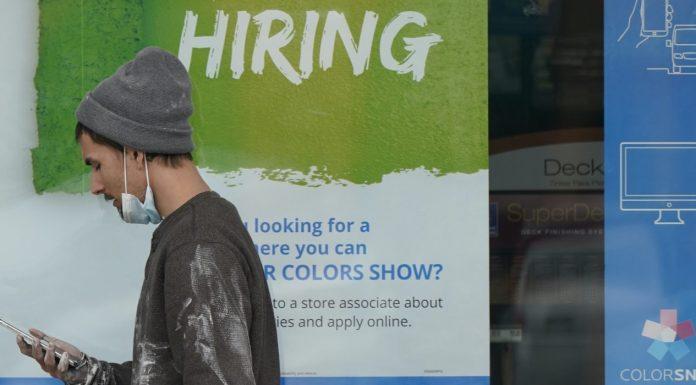(Brad Polumbo, Foundation for Economic Education) Should unemployment welfare pay more than your typical job?
Those familiar with the basic economics of how incentives work would say no. So would anyone with moral objections to taking wealth from others to finance others’ idleness.
But with the federal supplement to unemployment benefits set to finally end on Sept. 6, some on the Left are raising the alarm.
For context, the program in question is a federal expansion of pre-existing state-level unemployment benefits.
The expansion was originally passed at the height of the pandemic, in March of 2020. The expansion extended unemployment benefits to millions of new workers, such as gig economy workers and the unemployed.
It also added a $600/week supplement—later reduced to $300/week—on top of what state-level benefits already paid. (Existing benefits vary state to state, typically from $200/week to $600/week).
This expansion meant that many workers could earn more on welfare than they could from their regular jobs. Indeed, one study found that in dozens of states the average unemployed household could earn the equivalent of $25/hour on weekly benefits.
This creates a clear work disincentive.
It’s no coincidence that 9 of the top 10 states with the lowest unemployment rates have ended the benefits.
And according to polls, more than 1.8 million unemployed Americans are not going back to work because of the benefits. If anything, that’s likely a significant underestimate, as people are likely biased against admitting to such lazy behavior.
As a result of the unemployment bonuses and other pandemic-related factors, small businesses are reporting massive labor shortages.
The problem isn’t a lack of jobs. Right now there are approximately 1.2 unfilled job openings for every unemployed American!
But even given these realities, many leftists do not want the ultra-generous welfare scheme to expire.
The New York Times’s ominous headline reads: “Federal Jobless Aid, a Lifeline to Millions, Reaches an End.” (Ah, yes, by returning welfare to normal levels that don’t pay more than work, we are “ripping away a lifeline,” or something. Can you tell how hard I’m rolling my eyes?)
“Losing a job is something that we know from research is one of the most damaging things to your financial and personal well-being over the long run,” Andrew Stettner, a senior fellow at the left-wing think tank the Century Foundation, told the Times.
“We’ve avoided those kinds of long-term impacts to a large part during the pandemic because we’ve been aggressive with our forms of support,” he continued. “Now we’re pulling it back, we’re putting people at risk.”
Leftist commentators have been similarly critical. MSNBC’s Mehdi Hasan, for example, called the lapse in benefits “madness,” and, because President Biden isn’t fighting for a renewal, “another self-destructive move from the Democrats.”
“An estimated 7.5 million people will lose their benefits when federally funded emergency unemployment programs end. Millions more will see their checks cut by $300 a week.”
Madness. Another self-destructive move from the Dems. https://t.co/vqkzuSwz0b
— Mehdi Hasan (@mehdirhasan) September 2, 2021
And radical lawmakers like Rep. Alexandria Ocasio–Cortez, D-NY, and Rep. Ilhan Omar, D-Minn., have pushed behind the scenes in Congress for an 11th-hour extension of the benefits. (Although, thankfully, such an extension seems unlikely to occur.)
These proponents of making the “temporary” program stretch even longer toward permanency are wrong.
Allowing the supplemented benefits to lapse does not pull the rug out from every unemployed person in America—it just returns benefits to normal levels and eligibility. The lapsed supplement simply reverses the woefully bad incentives and encourages the unemployed to return to work, where their return is in high demand because of the labor shortage.
There is no compelling economic case for subsidizing idleness at a rate exceeding work. Nor is there any moral case for forcing others to pay for the idle to enjoy relatively lavish incomes.
But the takeaway here is broader than just progressives being wrong about one welfare policy.
This whole affair—the program being expanded again, again, and meeting tremendous backlash when finally allowed to lapse—is proof positive of the difficulty inherent in rolling back any expansion of the welfare state once implemented. As economist Ludwig von Mises once put it, “It is indeed one of the principal drawbacks of every kind of interventionism that it is so difficult to reverse the process.”
Simply put, once expanded, the welfare state is quite difficult to scale back.
This is true even when the program in question is facially and obviously absurd, like paying people more money not to work than work.
Don’t ever forget the tremendous difficulty, delay, and backlash that ending this unemployment welfare increase entailed. Remember it the next time progressive politicians propose a “temporary” expansion of the welfare state.

